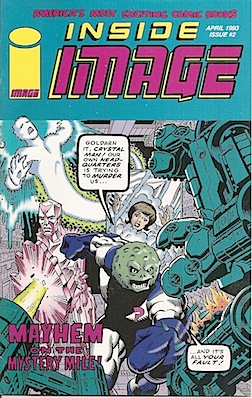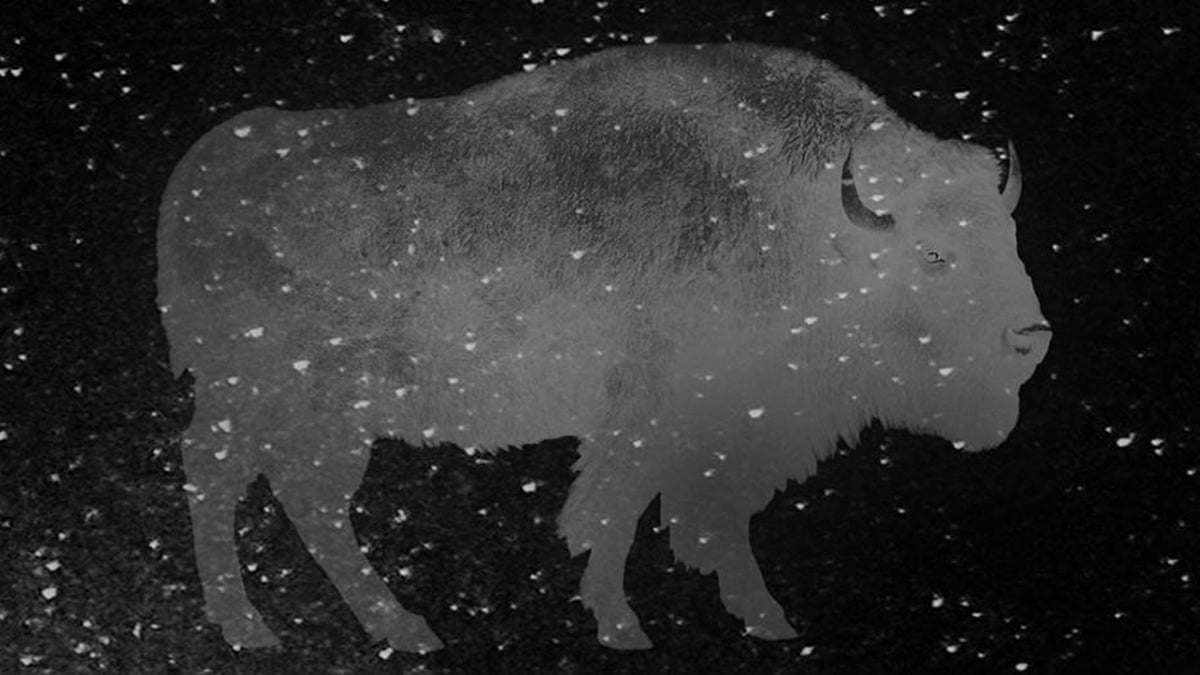Ruminating on the year past, cartoonist/educator Steve Bissette considers the story of how creator-owned comics can be sunk by just one stuck cog — in this case a rather large cog named Alan Moore. Just to bring everyone up to speed, 1963 was a very early Image project re-imagining the origins of Marvel, written by Moore and illustrated by Steve Bissette, John Totleben, and Rick Veitch, with additional art by Dave Gibbons, Don Simpson, and Jim Valentino and published in 1993. The final issue was to have been illustrated by Jim Lee, but Lee took time off in the middle, Moore decided not to finished it and…blah blah blah. Time passes. And, Bissette and Moore have a bit of a falling out, as chronicled in a series of interviews, here and there.
However, last year, a 1963 follow-up — Tales of the Uncanny – N-Man & Friends: A Naut Comics History Vol. 1 — was to be produced by Bissette and published by Image. Well, things didn’t work out, as Bissette posts. In addition, there was to be a reprint of 1963. After months of negotiations, Moore “pulled the plug” — meaning 1963 will never be reprinted ever again.
And ironically — given our rant earlier today about work for hire — Bissette has found the WFH has paid him far more than creator-owned comics over the year. In the spirit of equal time:
So, consider this:
In creator co-ownership, one partner can forever and willfully deep-six any future in any co-owned work—even completed, published work, that still has perceived or potential market value.
That, too, is part of creator ownership, and co-ownership, and creator rights, and must be taken into account in any discussion of the subject.
All of us who worked hard on 1963 back in 1992–93 earned whatever we would or will ever earn from that work back in 1993, and that was that.
We will never see a dime from any of that work again, while the quarterly royalties from the DC/Vertigo collected Swamp Thing editions (for which I wrote two book introductions in 2011, more on that in a moment) and John Constantine/Hellraiser arrive, for the most part, like clockwork.
If you had told the Bissette of 1990 that he’d never see a dime on any work done with Alan save the work-for-hire collaborative ventures we’d already put behind us by 1990, the Bissette of 1990 would have laughed and spit and ranted about the evils of work-for-hire.
Both Alan Moore and Steve Bissette qualify as…principled individuals who adhere strongly to their own belief systems. And Moore is undoubtedly one of the major literary figures of his time. He is also, to put it mildly, not always interested in the financial affairs of his past collaborators.
Bissette still hopes to publish Tales of the Uncanny sometime next year.
Mystery Incorporated © and TM Alan Moore and Rick Veitch. Inside Image cover by art by Rick Veitch and Dave Gibbons.









Well, technically, I think that Steve could possibly move forward on this project, subject only to a duty to pay Alan his 50% of earnings, but he could not give any EXCLUSIVE rights to anyone, which might piss off a publisher. This solution would, apparently, piss off Alan. If if a written agreement for the split gave Alan 51% or more control, then Steve is SOOL. Ugly, counterproductive, sad no matter how you look at it.
I thank god my partners, past and presant, understand that if one is doing very well, the other might need a hand and let them run with a co-produced creation with each others blessing.
The more I read this kind of stuff, the less I admire certain people in comics.
To say Alan Moore isn’t interested in the financial affairs of his past collaborators fails to take into account that he gave all the money from the Watchmen film to Dave Gibbons, and I believe he did the same with David Lloyd on V for Vendetta.
Lately there seems to be a real effort to paint Moore as some sort of disgruntled nut–see Jason Aaron’s (and others’) misreading of his comments about DC’s talent pool–rather than someone who no longer wanted to work in an industry he deems exploitative. The guy put in years and years and years making great comics–to have grown dissatisfied and elect to move on doesn’t make him crazy or grumpy or a loose cannon.
I’m not suggesting he hasn’t made decisions that cost his collaborators money–just sort of alarmed by the recent glee with which people seem determined to knock him (and Frank Miller, though that’s another matter), seemingly just because he decided to leave comics.
well geez, if you listen to bissette then pretty soon comic writers and artists are going to start ceding control and rights to their creations in exchange for such things as distribution, promotion, business negotiations, legal arbitration and other areas of service and expertise that require years of training and study to master. then comics will be truly ruined.
Matthew — I wrote “He is also, to put it mildly, not always interested in the financial affairs of his past collaborators.” Accent on the not always. I was thinking of him assigning the rights to his OTHER collaborators. So yeah, sometimes, he he a prince of a guy. Sometimes he is a lovable cranky!
But I do agree with you about the kicking of Miller and Moore.
Bissette should recall that one of the key creator’s rights advocated by Dave Sim during their association (I’m pretty sure this point was mentioned during one or more of their lengthy public discussions of creator’s rights) was that contributors to a work should always have the right to publish the parts of the work they contributed to (dividing profits appropriately), even if the other contributors disagree. It’s not as if this exact problem hasn’t been considered and discussed. The stumbling block has always been that people don’t decide these questions up-front, before the collaboration begins.
I don’t know but maybe it’s just me but Alan Moore is just turning into a complete A-hole. The man is a genius who’s writing I’ve admired very much for the last 30 plus years, but get over it. I’ve been a freelance designer for almost 40 years and I don’t always agree with my clients for what ever reason. But at times they are right and other times I am. Let’s remember this is business, first and for most. Like my grandfather once told me, “Can’t we all just learn to get along”.
Alan isn’t perfect and neither is DC.
Heidi–I probably didn’t communicate properly that I did see the “not ALWAYS” in your comment. I think you’re correct there and hope I didn’t sound like I was taking you to task; just wanted to point out a couple of big examples that went the other way.
Re: the trashing of Moore and Miller–something Oedipal about it, methinks.
@Eallengd–your comment is what I’m alluding to–what has Moore done that makes him an asshole? He’s simply washed his hands of the industry after what he regarded as business practices he found unacceptable. Is that misbehaving?
Sad.
But keep in mind, Steve’s still doing the TALES OF THE UNCANNY one-shot, possibly as POD(a method I’ve been using for over a year which I rather like because, well, I’m cheap and not into risk, and the final product is no different than if I’d printed a bunch I was sitting on), next year. I understand that will probably be it.
But rather depressing. I love Moore and Bissette both, but it’s not Moore I side with here. At all.
“Why can’t people just be nice?”–Garth Ennis.
PS–By the way, no one’s considered here that this doesn’t just screw Steve. Rick Veitch in some ways even more. And John Totleben. And to a lesser degree, Jim Valentino, Don Simpson, and I’m sure I’m forgetting someone but others too.
That’s just kind of…I won’t say.
I can understand Moore wanting to retain some level of control over his work, but putting his own wishes in front of the interests of Bissette, Totleben, Veitch, Gibbons, Simpson and Valentino’s own strikes me the wrong way. Obviously, the only people who know what was actually said and why negotiations broke down were the creators themselves; but surely he could have let 1963 go back to print without his name attached? Or credited as ‘Alan Smithee’, perhaps?
The odd part of this is that, as mentioned above, Moore usually IS a mensch when it comes to his collaborators, so what’s the deal with this?
At first I just thought it was a Him and Steve thing till I realized Rick and he have seemingly remained close a while.
I just hope Moore and O’Neill never fall out. Oy. That would suck.
I think I’d put it out anyway. Let Moore sue. Make sure the venue is the American courts. Bring the whole collaborators’ rights issue to the forefront. The publicity alone would be worth it.
When you think what Moore scripts demand of an artist, how much work, how much love went into such projects…it makes Alan look like he just considers them an extension of his hands, and when he’s done with it everyone else has to be too.
I hate to say this but Kevin O’Neill should watch his back.
Depressing as hell, and ironic that he’s now making DC look ethical and decent. They do pay royalties on time. As Steve says, “like clockwork.”
Too bad — It was a nice series.
The good news, for collectors at least, is that “1963” was published at a time when print runs were pretty large compared to today, and thus copies will probably always be available in dollar boxes at conventions, or on eBay.
The bad news is that there won’t be any new revenue streams for the original creators from pricey reprint volumes.
I think the whole situation is a great example as to why, when it comes to creator-owned stuff, it is in the best interests of the creator to work alone.
@ Jimmy P.: Indeed. One would hope & wish that if you work with someone on a project, paperwork or not, that they’d have that level of decency & fairness. I have seen not one, but repeated examples in the industry of that not being the case. It’s unfortunate & removes not only great stories from circulation, but sometimes creators too. If stonewalled by a prior partner sometimes creators turn to other work to pay the bills & drop right out of comics work overall.
@R. Maheras – not always, about working alone, but I get your point.
Bottom line: if you’re working on a creator-owned project & not working solo, make sure you have all your ducks in a row IN ADVANCE, before production begins. Think you don’t need paperwork, ’cause you are working with a friend? If you want to *remain friends* (as well as protecting whatever creative interest you have in the work at hand), get agreements in writing ahead of time.
Have all the crazy “what if” discussions you never think you’d need to have about production cost, rights (including reprint rights), sharing of credit, how you as a team make money during production, rate of work production/realistic assessment of how long each partner’s end of things will take, what if it’s a huge failure, what if it’s a huge success. *Then* go create together & have a blast.
I’m going to go out on a limb here and assume no one read any of the links The Beat put in the article. I’m reasonably certain people are jumping to conclusions here.
Trying to pick a side between Moore and Bisette is a mug’s game. There’s a long history and their mutual dislike of one another is nothing new. Both are fine people, but that’s the thing…they’re people. Conflict is natural. Conflict in a working relationship 30 years old is very difficult to move past.
Bummer. I would have liked to read it.
I did read the links but actually found it difficult to follow what the disagreement was beyond Bissette wants to reissue stuff and Moore doesn’t want him to. Found that page nearly impossible to follow, to be honest.
“And Moore is undoubtedly one of the major literary figures of his time.”
This seems a pretty bold statement to me. In comics and narrative literature, maybe, but not in ‘literature’ literature.
I bought 1963 off the racks way back when, and I enjoyed it, but the “lost” work from Steve Bissette that I really miss is Tyrant. Unfortunately, I’m guessing that the current market is no better set up to fund the completion of that book than it was after the speculator boom went bust.
That said, I’ll be buying Tales From the Uncanny when it finally gets released.
@Matthew
Not you. You seem concerned with putting stuff in context. A lot of others are reacting quickly without even trying. People like that always need a hero and a villain.
I was able to track down the back issues without much trouble. Early Image print runs were HUGE!
And to say it will “never” be reprinted is an exaggeration. After he dies (in a very distant future, I hope), his heirs may not have the same opinion about reprints. And it will be available for everyone whenever it goes into public domain (which will be on an even more distant future…).
@Chris–thanks for that. I didn’t mean to imply that I felt insulted by your comment, only felt impelled to mention that I found the article tough to decipher.
More than that, though, I agree with your point about the hero and villain thing. I’m a little exhausted with that schism, which I rarely see in reality–but I see it all the time in comic books. . .
Well, given the tale told in Bisette’s CBR interview, the culprit in all this would seem to be Jim Lee.
And let me say I am shocked—SHOCKED—that he’d fail to produce a book he’d committed to drawing.
1963 was nothing short of a glorious series. It is a shame there will be no reprints or trade paperback editions, as I often scour bargain bins for these issues. I will not part with my copies, but like to give the set as a gift whenever possible.
This story seems out of phase with how Alan has handled similar things in the past. When presented with a project with which he does not wish to ally himself, such as the various movies, he signs away his portion of the rights, tells the money-holders to give his share to the artists, and washes his proverbial hands.
I might guess that since this is a reprint of his work, something they couldn’t feasibly remove his name from, that was not an option.
Money doesn’t seem to worry him as much as being treated fairly, or that the company does things fairly. Is there any chance he was attempting to apply pressure on actions taking place elsewhere in Imageland? Some act he found fault with, and wanted changed?
Come to think of it, have there been any reprints of his ABC stuff since the re-falling out with DC? But that wasn’t creator-owned stuff, was it?